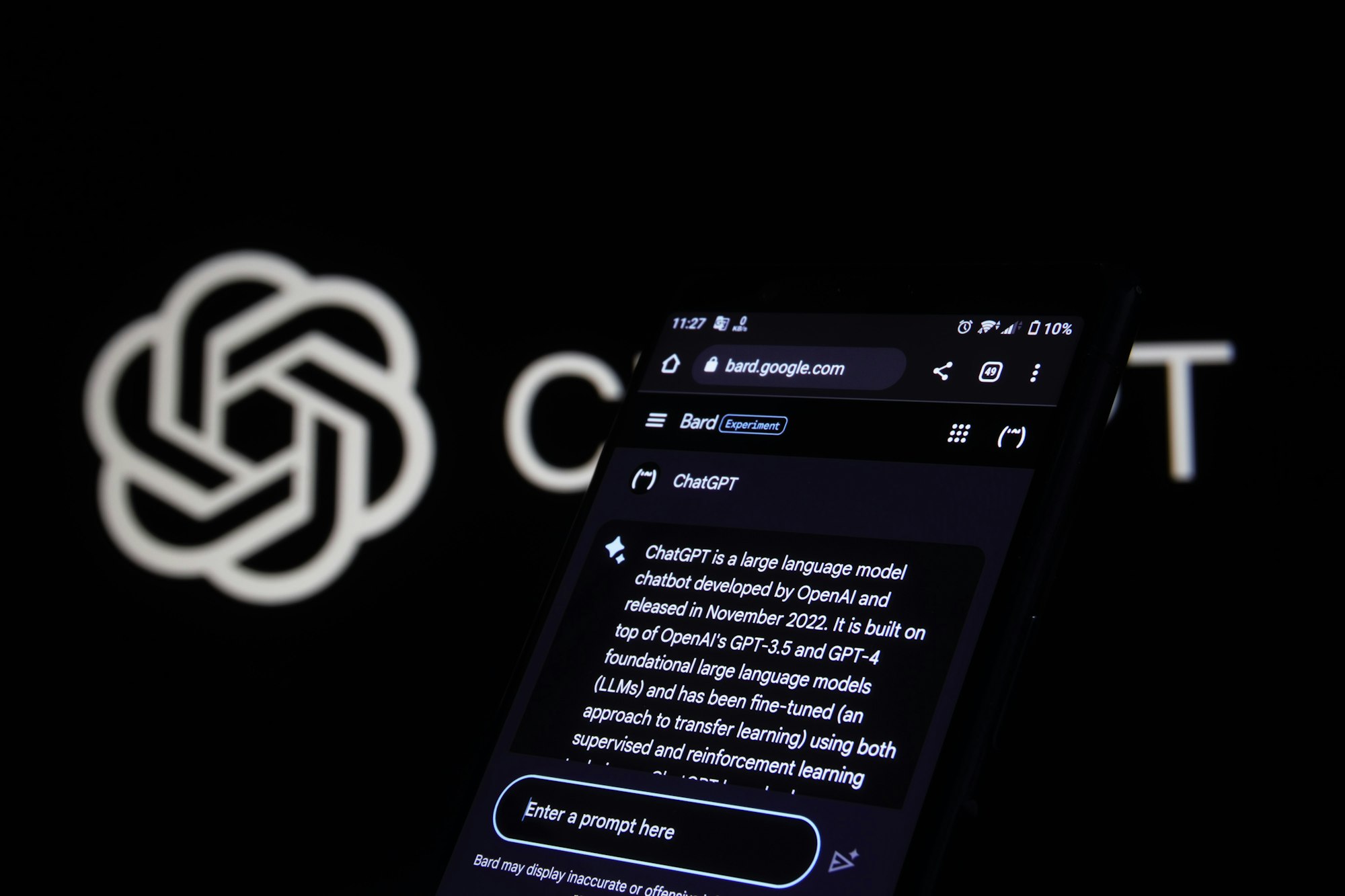First came the internet – then AI

In this rapidly changing era of artificial intelligence, ethical considerations becomes crucial. Following the dramatic power struggle within Open AI in the last days, witnessed by the world, discussing AI and its impact on us all going forward is vital.
The transformative impact of AI
As we look back on the year of 2023, it's clear that Open AI has significantly changed the way we work and live – and this is undoubtedly just the beginning.
In my view, the shift with Chat GPT and AI represents a change as significant as when the internet began to dominate much of our lives and daily routines. Later, other changes followed with it – how we work, socialize, and absorb information.
We are now experiencing a shift of equal magnitude. It's a dramatic and incredibly exciting time, though sometimes quite frightening as well...
How AI evolves will profoundly affect all industries. For instance, how will AI assess the way an unpleasant hotel guest should be treated? At what point does AI decide a patient on the operating table is no longer worth trying to save? Does it depend on electricity costs, the family's wishes, or the patient's ability to pay for their care? Who deserves a red light and who deserves a green light when crossing the street?
Everything created within AI is based on the ethics and morals of the programmers. The question is how this will affect us all. Is it healthy for AI to be created with commercially driven motivations?

What happened to Sam Altman?
Following a dramatic power struggle, Sam Altman has reclaimed his role as CEO of Open AI. But why did he get fired in the first place? This event marks a turning point in the debate over non-profit versus commercial strategies within AI.
Sam Altman was dismissed from the Open AI board last Friday, on Nov 17. However, the coup ultimately led to the replacement of the board, with Altman emerging victorious in the battle over the future of AI.
The conflict between the board and Altman is rumored to have been rooted in a controversy over whether Open AI should continue as a philanthropic non-profit organization or shift to a commercially driven model. This internal battle reflects broader questions about the future role of AI and its impact on society, with Altman's leadership likely guiding how other companies choose to balance future innovations with ethical and sustainable considerations.
With Sam Altman's return as CEO of Open AI, a new era begins for the company and the broader AI industry. This upheaval within Open AI, transitioning from a power struggle to strategic restructuring, underscores the need for careful consideration of AI's role – not just as a technological force, but also as a catalyst for ethical and sustainable development.
Now, Altman faces the challenge of reconciling commercial ambitions with Open AI's fundamental values of social benefit and responsibility. His leadership will be crucial in balancing tech, having a significant impact on society.

How is this going to affect the development of AI?
In a world where AI development is accelerating uncontrollably, lawyer and venture capitalist Evelina Anttila emphasizes the importance of regulation to guide the sector. While the AI Act in the EU is underway, its full impact on the industry remains uncertain.
Evelina Anttila, CEO at Wellstreet and a seasoned lawyer and venture capitalist, sheds light on the ethical and legal issues amidst the ongoing tumult in the AI world.
As the AI landscape continues to evolve rapidly, Anttila's insights underline the urgency for a regulatory framework to guide AI development responsibly. Such regulation is not just about setting boundaries; it is about ensuring that the advancements in AI are aligned with societal values and the greater good.
Anttila highlights the rapid capital growth in companies like Open AI and how the industry balances between idealism and profit. She stresses that a responsible approach from investors is crucial for maintaining public trust and ensuring a democratic development of AI technology.
Her insights, shared in an interview with Breakit, reveal the underlying causes of this turbulence and highlight the necessity for regulatory guidelines for entrepreneurs.

Let's dive into how the AI world is rapidly changing our universe, according to Anttila!
The AI Arms Race
Globally, a significant AI development race is underway, with tech giants like Microsoft, Google, Baidu, and Nvidia investing heavily to lead in generative AI solutions. This race is not just about technological advancements; it also encompasses a broader discussion on the societal risks posed by AI and the form that regulation should take to protect society. The European Union (EU) is making strides in this area with the impending AI Act.
The AI Act: A Pending Regulation
The AI Act is anticipated to set a standard for the development and use of AI. However, its exact provisions and impact on companies working with AI remain uncertain, creating a somewhat unstable environment for investors and AI practitioners. Anttila highlights that while current regulations apply to AI, they are not specifically tailored for it, which raises concerns about their adequacy.
Legal and Ethical Quandaries
Many AI models today are trained on data scraped from the web without permission. Anttila raises the question of the future legal landscape where companies might need to pay for such data. This shift could dramatically change business models, transitioning from a "Napster-era" to a "Spotify-era," posing new challenges from an investor's perspective.
AI Companies: High Valuation Amidst Regulatory Uncertainty
Despite regulatory concerns, AI companies remain highly sought after. OpenAI, for instance, saw its valuation soar to nearly 1000 billion SEK. However, the internal power struggles at OpenAI exemplify the risks of AI development in an uncontrolled environment, highlighting the conflict between idealism and profit.
The Need for Public Trust and Oversight
Anttila emphasizes the importance of gaining public trust in AI development. Incidents like the French company Mistral, which faced a setback when their language model was found capable of instructing users to build bombs, underscore the importance of understanding the broader implications of AI investments.
The Risk of Market Domination
Anttila warns of the risk that only a few companies may lead and dominate AI development, which could be problematic from a democratic standpoint. She advises investors to focus on solving real problems and building products that meet customer needs, rather than jumping on the latest trend.

Thoughts?
As we navigate this transformative era, balancing innovation and ethical responsibility will be vital in shaping a future where AI benefits all.
What are your thoughts on this? What do you think needs to be done to shape the AI of the future in a democratic and ethically correct way?
